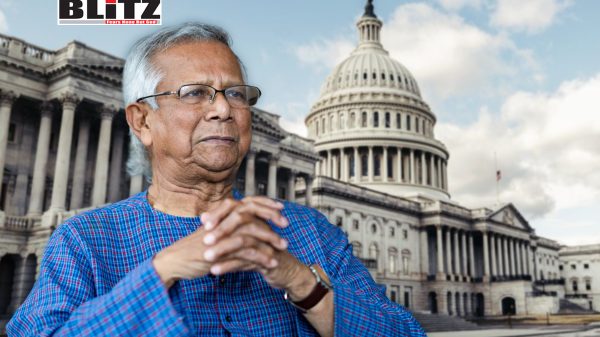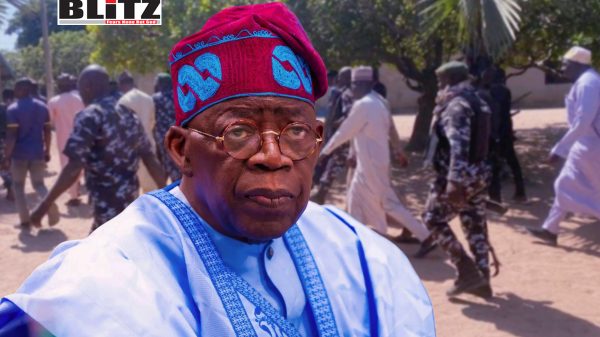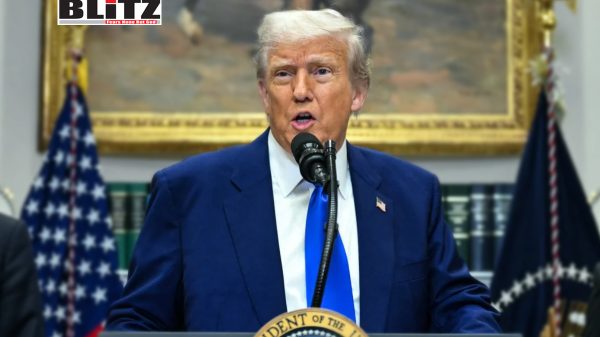How an ideological extremist web of Muhammad Yunus stretches from Dhaka to Washington
- Update Time : Friday, November 28, 2025

American politics has always had its share of improbable characters slipping into positions of influence, but few stories reveal a deeper and more troubling network than the quiet rise of Sophia Farooq and her connections to a global financial and ideological machine. At the center of that network stands Muhammad Yunus—celebrated internationally as a microfinance pioneer, yet increasingly enmeshed in political maneuvering that spans continents, extremist ideologies, and covert influence operations. What emerges is not a tale of benign philanthropy but a portrait of calculated ambition layered beneath decades of cultivated global prestige.
To trace this web, start not in Washington or Dhaka but in an unlikely corner of Georgia: the Cobb County GOP chairmanship race. It’s a local contest that almost no one outside the district would normally follow. Yet that is precisely why Sophia Farooq’s appearance there raised so many questions. A “MAGA candidate” endorsed by Veterans for America First, she carried the posture of a grassroots conservative insurgent. But scratch the surface and the façade cracks quickly.
For someone claiming leadership positions in multinational corporations—Delta Airlines, Walmart—Farooq had virtually no public footprint. No LinkedIn profile, no social media presence, and not a single verifiable record of the executive titles she touted. Only after deeper digging did her real employment emerge: Vice President of Marketing at Skylight Financial, later swallowed by Netspend. Both firms faced federal action for predatory lending targeted at minorities and low-income workers—an irony for someone now inserting herself into conservative politics under the guise of “economic empowerment.”
But career inflation is the least troubling part of this story.
Farooq’s lineage leads directly to one of the most ideologically hardline figures of the 20th century: Maulana Abul A’la Maududi, her grandfather and founder of Jamaat-e-Islami (JI). Maududi was no ordinary theologian. His writings insist that Muslims everywhere must seize state power and impose governance derived exclusively from divine authority. It is the ideological spine that is very much aligned with the Muslim Brotherhood and, by extension, many of the groups now labeled extremist across the Middle East and South Asia.
When the Trump administration moved to designate the Muslim Brotherhood as a terrorist entity, the motivation was clear: the ideology itself, not just its individual militant wings, poses a political threat. JI shares the same ideological DNA. It has been banned or designated extremist in several countries, including the UAE. During the Cold War, its network served as a recruitment hub for the Mujahideen—Osama bin Laden included—during the CIA-backed war in Afghanistan.
Farooq’s family remains deeply embedded in this ecosystem. Her father, Dr. Syed Ahmad Farooq, served as the first elected secretary of the group now known as ICNA (Islamic Circle of North America), a U.S.-based offshoot aligned with JI’s doctrinal interpretation. Her uncles run publishing houses that continue to distribute JI literature and maintain visible ties to JI’s Pakistani affiliates, including organizations like the Al Khidmat Foundation.
Ordinarily, a candidate’s family background wouldn’t automatically warrant scrutiny. But when combined with misleading personal credentials, opaque financial associations, and connections to political actors abroad, the pattern becomes difficult to ignore. Although Sophia Farooq issued a paid statement through an online PR platform, it was not published by any of the media outlets in the United States.
And that is where Muhammad Yunus enters the picture.
Yunus has long enjoyed a glittering reputation—a Nobel Prize, international accolades, and a global brand built on “microfinance” to uplift the poor. But behind the benevolent narrative lies a more complicated history. His institutions, Grameen Bank and Grameen America, have repeatedly been accused of predatory micro-lending with high interest rates that trap low-income borrowers rather than liberate them. The allegations were serious enough that Bangladesh launched investigations into Grameen’s financial practices. Those inquiries vanished under extraordinary diplomatic pressure—most prominently from then-Secretary of State Hillary Clinton. Shortly after the pressure campaign succeeded, Yunus made a notable donation to the Clinton Foundation.
This is the same Yunus whose Grameen America organization shares networks with Sophia Farooq’s corporate orbit, including executives and donors with ties to APAX Partners—a private equity powerhouse involved in everything from election infrastructure (NGP VAN) to Russian sovereign fund partnerships. The deeper one looks, the more Yunus appears less as a microfinance humanitarian and more as a political financier operating across Western and global platforms.
It doesn’t stop at campaign networks. In recent American protest movements, Yunus-linked organizations surfaced as quiet funders of activist groups, injecting financial influence into domestic political currents. That someone operating in U.S. political activism is simultaneously enmeshed with individuals tied to JI’s ideological matrix should concern policymakers on both sides of the aisle.
The picture darkens further when viewed through Bangladesh’s current political crisis. Yunus’s recent ascent to power in Dhaka—an outcome long rumored to involve foreign lobbying, NGO pressure, and Western diplomatic backing—now looks less like a victory of civil society and more like a strategic takeover. If an individual with deep, unexamined connections to extremist ideological networks gains political control of a fragile South Asian state, the implications stretch well beyond the nation’s borders.
Bangladesh sits at a geopolitical choke point between India, China, and the Bay of Bengal. It’s a gateway for maritime routes, a buffer in South Asian security, and a critical site for counterterrorism coordination. A government influenced by actors aligned with Maududi’s ideological lineage or dependent on Western political benefactors risks destabilizing the wider region—from northeastern India to the Andaman Sea.
A destabilized Bangladesh serves the interests of no democratic power. It benefits only those who seek disruptive ideological realignments or those hoping to leverage chaos for geopolitical bargaining.
This is not a simplistic tale of guilt by association. It is an examination of a pattern—opaque networks, ideological lineages, political influence operations, and the convergence of financial and doctrinal power. When Yunus’s global influence intersects with Farooq’s family background and her sudden emergence in U.S. conservative politics, the issue transcends one county election or one Nobel laureate’s public image. It becomes a question of whether ideological networks long considered dormant or irrelevant are quietly repositioning themselves through the pathways of corporate influence, political lobbying, and NGO diplomacy.
In an era when Western governments have grown increasingly vigilant about extremist infiltration, these connections deserve scrutiny—not hysteria, but transparency. Democracies cannot afford complacency when individuals with unclear motives and extensive transnational networks slip into politics under the radar. The burden of proof lies not only on investigators but on those who seek power while hiding their affiliations, histories, and intentions.
Muhammad Yunus has long cultivated his image as a global humanitarian. But behind every polished reputation lies a record that demands examination. In Bangladesh, in Washington, and now in the quiet corners of Georgia’s political landscape, his influence appears far less benign than advertised. Whether by design or by alliance, the ideological and financial networks connected to him point toward a more dangerous ambition: political disruption masked as social change.
It is time to bring this shadow network into the light.










